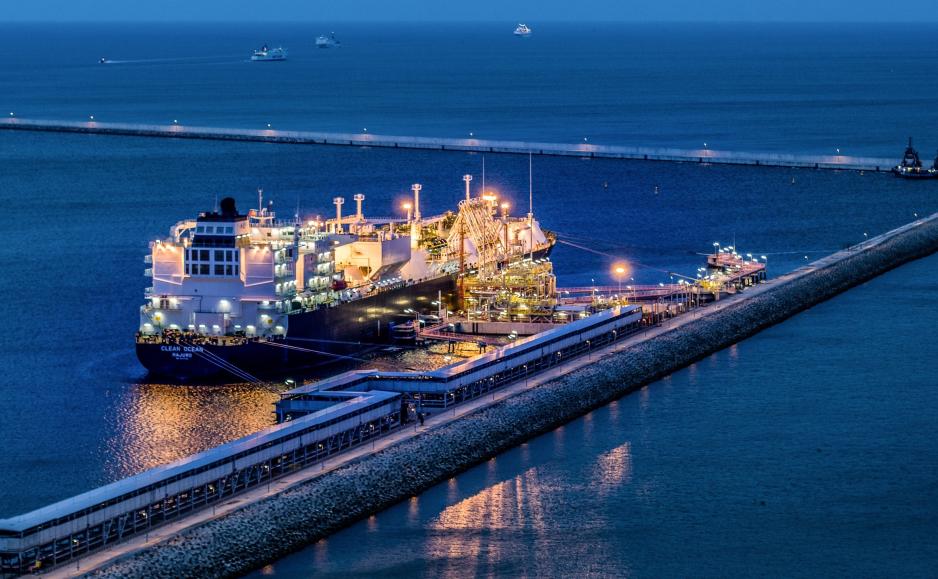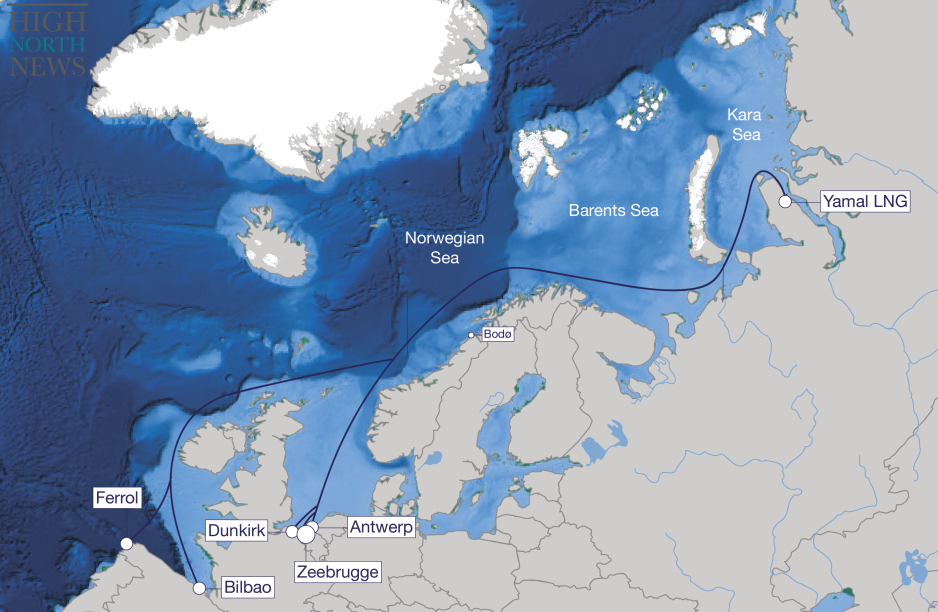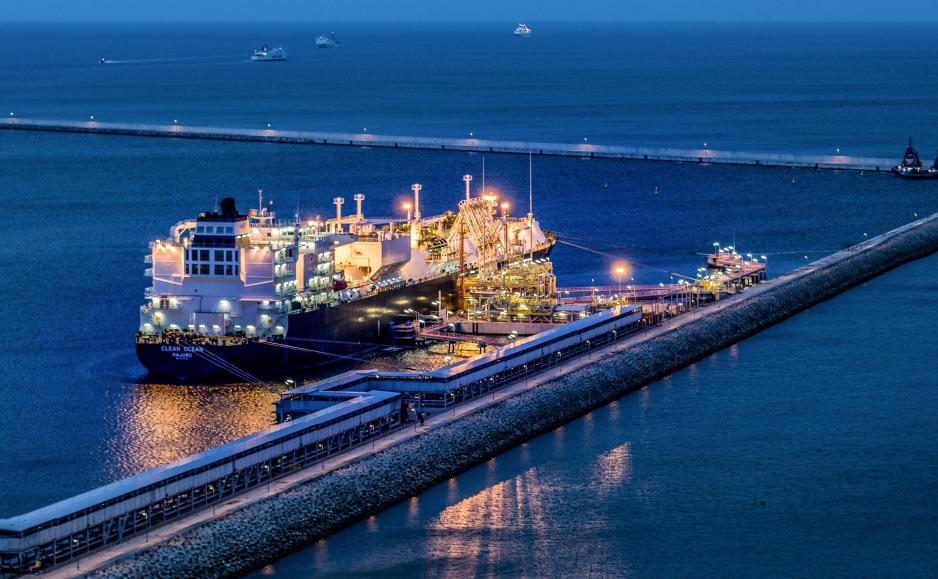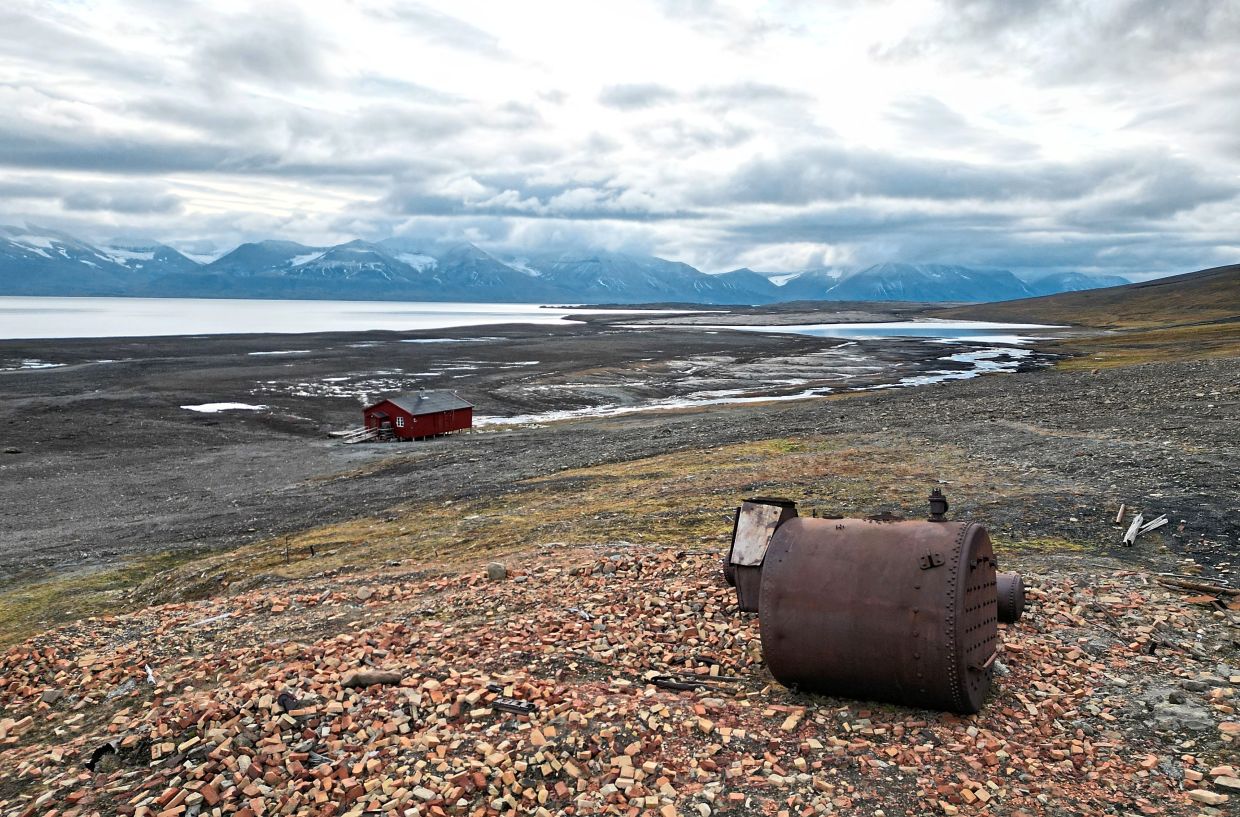
Świnoujście LNG import terminal in northwestern Poland near the Polish-German border. (Source: Maciej Margas under CC BY-SA 4.0)
After sanctioning the import of most pipeline gas from Russia, the EU is now beginning to target the flow of Russian LNG into the bloc. EU member states increased consumption of Arctic LNG by 50 percent since the beginning of sanctions. A new proposal would allow EU member states to block the import of LNG.
During a meeting of EU energy ministers last week the bloc discussed new measures to curb, if not outright ban, the import of Russian LNG into Europe. The vast majority of Russian LNG to Europe originates from Novatek’s Yamal LNG plant in the Russian Arctic.
Rather than relying on the instrument of sanctions – which would require unanimity among all 27 member states – the EU wants to clear the way for individual states to block Russian companies from utilizing LNG import infrastructure.
The proposed regulatory rules, however, will have to pass through the EU Parliament.
Stop Buying Russian Arctic LNG
The efforts come just a few weeks after the EU energy commissioner urged member states to stop importing LNG from Russia. The UK, a former member of the EU, already implemented such a step earlier this year, banning the import of Russian LNG from 1 January 2023.
“I think that we can and should get rid of Russian gas completely as soon as possible, still keeping in mind our security of supply. I encourage all Member States and all companies to stop buying Russian LNG and not to sign any new contracts with Russia once the existing contracts have expired,” said Kadri Simson, European Commissioner for energy on 9 March 2023.
The import of Russian LNG into the EU increased by 50 percent in 2022. In 2022 EU countries received around 13.6m tons of Russian LNG, compared to around 9.4m tons in 2021 and 2020.
And the trend continues unabated in 2023. During a 10 day period at the end of March and early April Europe received ten LNG deliveries from Novatek’s Yamal LNG plant in the Russian Arctic.

Using vessel-tracking information HNN was able to determine that Belgium and Spain were the primary recipients of the cargo, with additional voyages also destined for France. The deliveries of LNG send around €300m to Russia per month.
In contrast to gas deliveries via pipeline, which has been curbed by 80 percent following EU sanctions, LNG imports into the bloc have ramped up by more than 50 percent since the beginning of the Ukraine war.

Legal tool to member states
With LNG delivery contracts from the US, Africa and elsewhere now firmly in place and the EU’s LNG supply situation having stabilized, the bloc appears eager to cut off another Russian hydrocarbon revenue stream.
“We cannot and will not go back to the status quo with Russia as our main gas supplier,” said Kadri Simson, the EU’s energy commissioner.
“The possibility for member states to temporarily restrict capacities for gas, including LNG, from Russia and Belarus, is an important addition. We need to protect our security of supply,” asserted Simson during last week’s meeting.
It is unclear which EU member states will utilize the option of blocking Russian LNG if given the option. Germany and several eastern European members, including Poland and the Baltic states, have been vocal about reducing or completely banning Russian LNG.
Such rhetoric has been much more subdued in Belgium, Spain, and France, the primary beneficiaries of Russian LNG imports.
“You build the infrastructure to get rid of the supplier who manipulated your (gas) markets and caused great difficulties to you – and then you accept the same supplier through LNG? There is something wrong with the logic,” said Lithuanian Vice Minister for Energy Albinas Zananavicius last week according to Reuters.
These efforts come at a time when Novatek, Russia’s largest private gas producer, is weeks away from commissioning a floating transshipment hub near Murmansk. The hub was designed to facilitate the delivery of LNG to Europe.
It is unclear if Novatek will reconsider its decision in the light of the EU’s plans to stymie the flow of LNG to Europe. The company could possibly choose to deploy the hub, the Saam FSU, in the Far East instead to optimize Arctic LNG deliveries to China and India.
Novatek did not respond to requests for comment on the matter.




